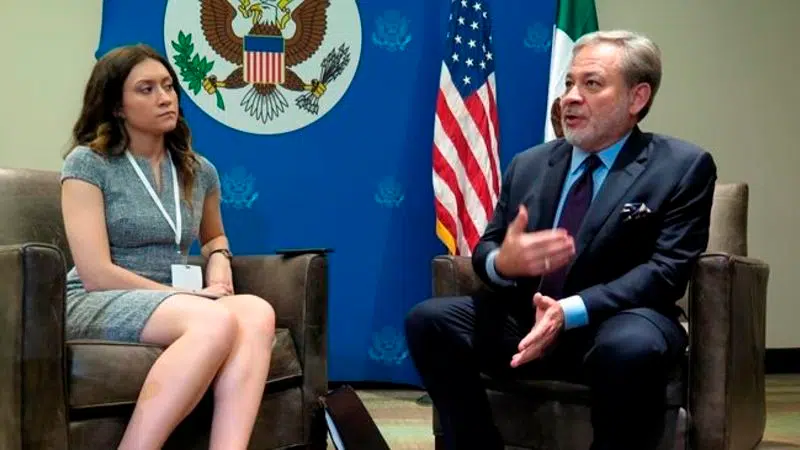
At US-Mexico CEO summit, leaders optimistic amid uncertainty
MERIDA, Mexico — Business and political leaders from the U.S. and Mexico gathered Friday to promote greater trade at a time when actions by both governments have rattled investors, expressing optimism despite times of uncertainty and tensions over the border and illegal immigration.
Investment in Mexico has been cool pending passage of the new U.S.-Mexico-Canada trade agreement that is meant to update NAFTA, and due to other concerns for the global economy, and attendees saw ratification as a solution to that.
Thomas Donohue, president and CEO of the U.S. Chamber of Commerce, stressed the valuable U.S.-Mexico relationship, noting that every day the countries do more than $1.7 billion in trade and some 500,000 people cross their shared border legally for work, school, or tourism.


